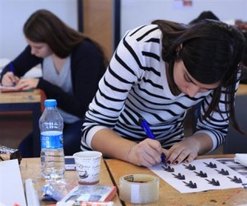About InEnArt
Joint production of information in cultural networks as an increase of values
 InEnArt is a cooperation of various civil society initiatives, that are active in the cultural field, as well as cultural institutions and universities, who understand the unregulated exchange of information as a global, basic need. Together they are launching a social network with the aim to promote cultural diversity and to contribute to a better understanding between cultures.
InEnArt is a cooperation of various civil society initiatives, that are active in the cultural field, as well as cultural institutions and universities, who understand the unregulated exchange of information as a global, basic need. Together they are launching a social network with the aim to promote cultural diversity and to contribute to a better understanding between cultures.
The partners of InEnArt understand social networks and social software as a resource for creativity and information exchange in the cultural field.
The participation of individuals together will create new unexpected relationships and will contribute to a better understanding of national, ethnic and religious boundaries.
Sustainability
InEnArt offers new opportunities for communication, which are often missed by users of existing social communities and at the mainstream media in the cultural sphere: unregulated connection of information, clear structures and thematically-organized interactive functions.
A collaboration of the participating cultural initiatives in this field don’t excist so far in a global framework and it will contribute to a greater exchange of information; it will contribute to a better visualization processes; it will increase new collaborative partnerships and it will open up a platform for public decision making.
The socio-cultural developments need independent networks to visilize their activities of sustainable consumption and civic change.
InEnArt as a sustainable investments is part of this cultural process.
InEnArt builds on technological efficiency through the use of existing open source software, through the connection of existing information resources and the needs-oriented development of social networks. InEnArt will convey positive social networks and social software applications on structures also outside of the digital media.
InEnArt contributes to social sustainability by improving access to information, removing of national borders, and in particularly by broadening participation; this will result into an increased participation in community decision-making in the cultural context, preservation of cultural diversity and the awareness and preservation of socio-cultural resources .
